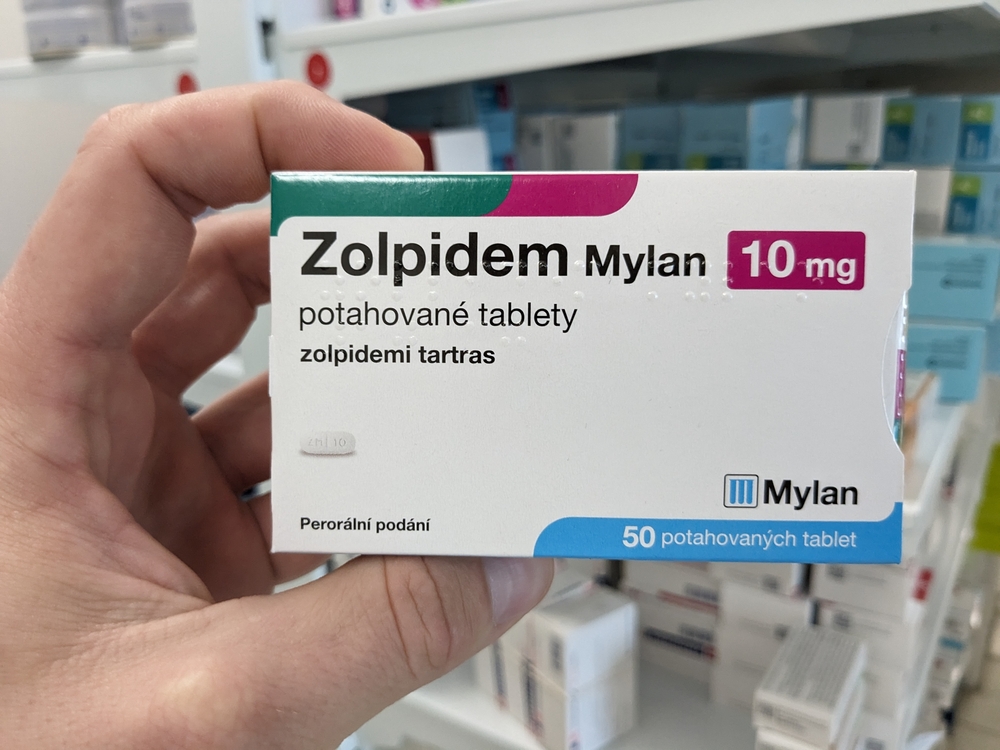Last Updated:
July 21st, 2025
Zolpidem Rehab Treatment | What to Expect
What is Zolpidem rehab?
Zolpidem rehab is a structured recovery programme designed to help you safely step away from reliance on this commonly prescribed sleeping aid. Known by its brand name, Stilnoct in the UK, Zolpidem works by calming brain activity and encouraging sleep, but over time, the brain can stop knowing how to fall asleep without it.
That’s when the balance tips.
What started as a way to get through restless nights becomes something you begin to rely on. Dosages might increase, sleep might feel less restful, or you might notice strange gaps in memory from the night before. Zolpidem rehab helps to untangle that dependency and supports your body in learning how to rest naturally again without needing to be switched off.

Do I need treatment for Zolpidem addiction?
Zolpidem addiction doesn’t always show up with clear warning signs. Often, it begins quietly. The dose goes up slightly. You take it earlier in the evening. You forget what happened between brushing your teeth and waking up the next day.
Some signs that Zolpidem rehab might be right for you include:
- You feel uneasy or restless without taking it
- You’ve started taking more than prescribed
- You have memory gaps or feel disoriented in the mornings
- You’ve tried to stop but couldn’t fall asleep without it
- You no longer trust your sleep or your behaviour while asleep
If any of this sounds familiar, that’s a sign worth listening to. Zolpidem rehab offers a safe, supported way to step back from that cycle and reclaim the rest you deserve.
What happens during Zolpidem addiction treatment?
The idea of going into rehab can feel overwhelming, especially if you’ve been managing your use quietly for some time. However, at an addiction treatment facility, the process is designed to be both supportive and straightforward. Zolpidem addiction treatment plans are typically broken into stages: assessment, detox, therapy and long-term support.
Assessment
Rehab begins with a detailed assessment. The team at the rehab centre wants to understand your current relationship with Zolpidem, your general health, sleep history and any other challenges you might be facing, such as anxiety, stress or trauma. With that understanding, they’ll build a personalised care plan that meets you where you are and adjusts as needed.
Zolpidem detox
Detox is the first physical step in recovery. It’s where Zolpidem is gradually reduced under careful guidance. Although it’s not a benzodiazepine, Zolpidem acts similarly and withdrawal can still cause considerable disruption, especially if you’ve been taking it for a long time.
Some symptoms of Zolpidem withdrawal may include:
- Rebound insomnia and vivid dreams
- Anxiety, irritability or restlessness
- Muscle tension and tremors
- Nausea, headaches or dizziness
- Feelings of confusion, agitation or dissociation
Medical staff monitor you closely throughout the detox stage, providing all the support where needed. Your dosage will be tapered slowly, giving your body the time it needs to adapt safely.
Therapy and structured recovery
Once the medication has begun to leave your system, therapy takes over as the main focus of treatment. This is where you’ll be helped to explore what sleep has come to represent in your life. Was it a way to escape? A way to numb out? Something you feared losing control over?
Treatment programmes provide a therapeutic environment where you can explore these questions openly. Zolpidem rehab programmes typically include:
- One-to-one counselling to unpack your personal story and triggers
- CBT and DBT to challenge sleep anxiety and reshape your thought patterns
- Group therapy to connect with others on similar journeys
- Holistic therapies like mindfulness, yoga and art to help restore balance
By integrating multiple forms of therapy, you’re guided to build a toolkit that supports both your emotional wellbeing and your natural sleep rhythms.
Support that extends beyond the walls of rehab
One of the biggest fears people have is: What happens after?
A strong commitment to your recovery shouldn’t stop when you leave rehab. Many programmes include up to a year of aftercare as part of Zolpidem addiction treatment. You may have access to regular check-ins and ongoing support from people who understand exactly what you’ve been through.
Recovery doesn’t solely focus on quitting a drug. It’s about learning how to live without it and rediscovering what true rest feels like, physically and mentally. When things get challenging after rehab, you shouldn’t have to face it alone.
Sleep shouldn’t come with a warning label
Zolpidem might have made sleep feel easier at first, but over time, that ease often comes with a cost. Nights blur together, memories become patchy, and mornings feel more confusing than refreshed. You start questioning what happened while you were asleep or if you were even truly asleep at all. What once felt like relief slowly turned into something harder to trust.
Sleep, in its natural form, isn’t meant to be unpredictable or unsettling. It’s supposed to be the place your body goes to recover, not something you enter with hesitation or leave feeling unsure. When the process becomes tied to side effects or behaviours you don’t fully remember, it chips away at your confidence in your own rest.
Inpatient rehab helps you break that pattern in a way that feels steady and safe. Over time, you stop approaching bedtime with worry and start approaching it with calm, because you know your body is learning how to sleep again.
That’s sleep you can rely on. Not forced, not foggy and finally, no warning labels required.

Why detoxing from Zolpidem at home can be risky
It’s tempting to try cutting down on your own. Perhaps you’ve already started. Half a tablet instead of a full one. Skipping a night here or there. But detoxing from Zolpidem without proper guidance isn’t always safe or successful.
The brain adapts to having Zolpidem in the system, and removing it too quickly or erratically can bring on unexpected reactions. Even if your plan is to taper, without professional input, you may be left vulnerable to a rebound effect that leaves you more sleep-deprived and emotionally unstable than when you began.
You might:
- Overestimate your ability to cope with withdrawal symptoms
- Return to your usual dose after one bad night, restarting the cycle
- Experience hallucinations or confusion that make you feel unsafe
- Struggle with panic attacks or intense agitation, especially in the evenings
- Lose track of your tapering process and end up in a worse position than before
In rehab, these risks are removed. Every stage is monitored. Every symptom is tracked. You’re not left to figure out what’s normal or dangerous. Instead, you’re guided gently and carefully, with the confidence that what you’re doing is safe, stabilising and sustainable.
You don’t have to keep wondering what’s happening while you sleep
If you’ve reached the point where you no longer trust your sleep or yourself during it, something needs to change. That change doesn’t have to be harsh or sudden. It can be steady, compassionate and clear.
At Addiction Helper, we’ll guide you toward the right support to help untangle your dependence on Zolpidem in a way that makes sense. With professional care, you can begin to sleep again without fear or confusion and without relying on a pill to get you there.
Reach out when you’re ready. The first step is yours to take, but you don’t have to take it alone.
Our compassionate team are ready and available to take your call, and guide you towards lasting the lasting addiction recovery you deserve.

